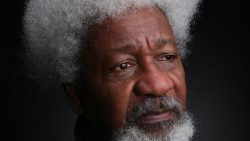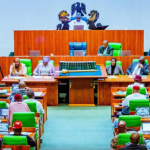Justice Emeka Nwite of the Federal High Court in Abuja has adjourned the money laundering case against former Kogi State Governor Yahaya Bello to September 25, despite the defendant’s appeal.
The court ruled that proceedings will continue on the scheduled date, refusing to stay proceedings pending the outcome of the appeal.
Bello’s legal team notified the court that they have filed a motion to stay the proceedings, pending the outcome of their appeal in the higher court, which challenges the arrest warrant and other rulings made by the trial court.
The appeal seeks to have the Court of Appeal review and overturn the trial court’s decisions, thereby suspending the case’s progress in the lower court.
When the case resumed on Wednesday, the defendant’s counsel, Mr. Abdulwahab Mohammed (SAN), argued that the court lacked jurisdiction to proceed with the case until the appeal pending before the higher court was resolved, citing relevant legal authorities to support his position.
He also decried the treatment given to his colleague at the last hearing.
He said: “Your lordship is functus officio. Heavens will not fall if the court stayed proceedings awaiting the outcome of the Court of Appeal.
“We are relying on the provision of the Constitution that overrides the EFCC Act, which the prosecution is relying on.”
However, Mr. Kemi Pinheiro (SAN), counsel for the EFCC, strongly opposed the application, arguing that the defendant had failed to produce any documentation from the Court of Appeal, indicating that the lower court should halt proceedings.
Nwite then questioned whether, given the receipt of the application and affidavit and the knowledge of the pending appeal, it would be proper for his court to proceed with the case, or would it be tantamount to judicial recklessness and disregard for the appeal process?
The judge further asked, “Won’t it amount to judicial rascality to continue this case when there’s an issue of jurisdiction?”
Pinheiro countered that the issue at hand was not a matter of jurisdiction, and that merely filing an affidavit was insufficient to stay proceedings, especially in a criminal case like this.
He urged the court to avoid becoming distracted by the appeal and instead concentrate on the task at hand, which was to deliver a ruling on the arguments presented on June 27.
Mohammed clarified that the court had been misinformed on June 27 and that their request was actually to strike out the proceedings from that day’s record.
He argued: “They are asking your lordship to undo the work of the Court of Appeal. To avoid controversy and in order not to render the appeal nugatory, this should not continue. Even if Yahaya Bello were to be here, you cannot arraign him.
“The affidavit filed on 16th July 2024, is to bring to your lordship’s attention the notices of appeal filed against your lordship’s ruling on 23rd April and 10th May.
“This appeal was transmitted to the Court of Appeal on 23rd of May and appellant’s brief of argument was filed on the 31st of May.
“Motion for stay has also been filed at the Court of Appeal. The two appeals basically challenge the jurisdiction of this court to entertain the charges ab initio.
“We urge your lordship to expunge the record of the proceedings on 27th June because at that time, an appeal had been entered and the proceedings should not have happened. The court was functus officio.”
He insisted that hearing the case would put his lordship in conflict with the Court of Appeal.
In his argument, Pinheiro pointed out that one of the appeals filed by the defendant was specifically seeking an order from the court to suspend further proceedings in the case until the appeal is finally determined by the higher court.
Despite the defence’s first authority being an outdated 1999 case that predated the EFCC’s 2004 founding, he argued that the judge was bound by his previous rulings and could decide whether to continue the case.
He submitted: “This same position was canvassed on behalf of Mustapha (SAN) in the 2016 case, Mustapha v. FRN, and the court held that proceedings can only be stayed where there is a Court of Appeal order to that effect, and they relied on Section 306 of the ACJA. In Chukwuma v. IGP, a 2018 case, the court held something similar.”
Responding on point of law, Mohammed said: “We have two notices of appeal—one on mixed law and fact and the other is on jurisdiction. The authorities he has cited have different jurisdictions. Chukwuma v. IGP is on the admissibility of the document and not jurisdiction.
“In Chief Cletus Ibeto v. FRN, which is an ongoing criminal appeal, all the facts are on all fours with the recent case.
“The lower court stayed proceedings because of the issue of jurisdiction, and now the argument at the court of appeal is on Section 306. That is how it is supposed to be.”
In his ruling, Justice Nwite said: “The grant of stay of proceedings is at the court’s discretion, and since it is an issue of discretion, no one can give an authority for the judge to rely on.
“The judge only needs to exercise this power judicially.”
Earlier, the judge had questioned whether proceeding with the case despite a pending jurisdictional issue would be a reckless abuse of judicial power, but upon reconsideration, he shifted his stance, suggesting that the defendant’s appeal was merely a tactic to delay the proceedings and not a genuine legal concern.
He pointed out that the Court of Appeal has already established precedents in similar cases, with previous judgments that have addressed such issues.
Additionally, the judge approved the request for Adeola Adedipe (SAN) to withdraw as the defendant’s counsel and directed the Legal Practitioners Disciplinary Committee (LPDC) to investigate the alleged professional misconduct of both defence counsel.
Nwite declared, having restated the legal position: “The question is whether there was an undertaking by Abdulwahab and Adedipe (SAN), which was breached to amount to contempt of court.”
Consequently, he adjourned the case until September 25, when Yahaya Bello is scheduled to be arraigned.
























Leave a comment